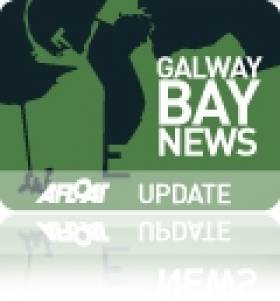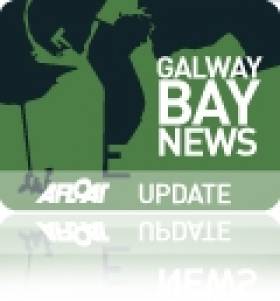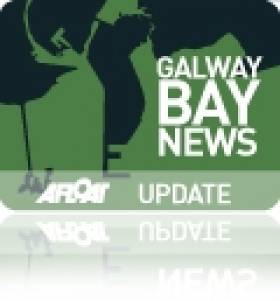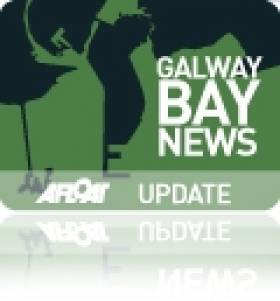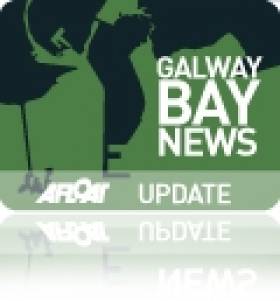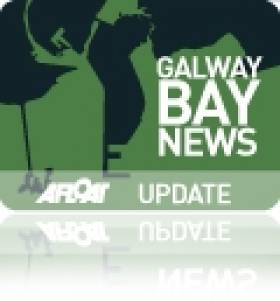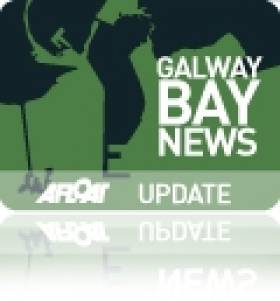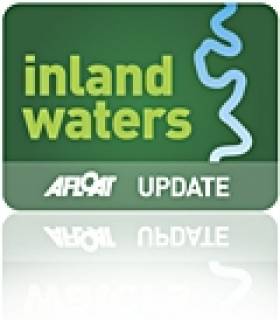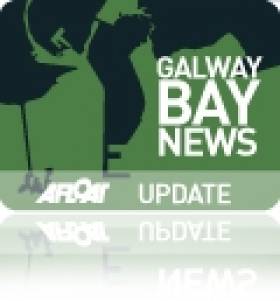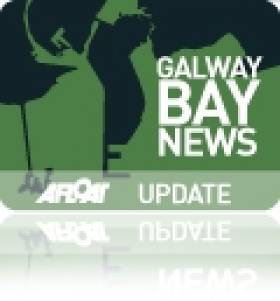Displaying items by tag: Galway Bay
Squabbling State Agencies Skip Fish Farm Debate
#FishFarm - The expected debate between two State agencies at loggerheads over the proposed Galway Bay deep-sea fish farm failed to take place as planned over the weekend as neither body sent a representative.
Bord Iascaigh Mhara (BIM) and Inland Fisheries Ireland (IFI) had been expected to debate the planned 500-hectare organic salmon farm off the Aran Islands during the Galway Food Festival over the Easter weekend.
Organisers were informed at the last minute that neither agency would be involved in the public event, with BIM telling The Irish Times it did not feel it would be appropriate to discuss the matter in an open forum when negotiations were ongoing.
Both sides have differed over the potential impact on wild salmon populations in the area, with IFI citing research that damns the negative consequences of sea lice infestations in fish farms.
Despite their absence, the debate went ahead as scheduled, with local businesses on both sides of the argument expressing their views.
The Irish Times has more on the story HERE.
Councillor's Concern Over Galway Bay Fish Farm
#FishFarm - A Galway county councillor has declared his reservations over the proposed deep-water organic salmon farm off the Aran Islands, as Galway Bay FM reports.
Cllr Jim Cuddy said at this week's meeting of Galway County Council that concerns had been expressed to him by angling interests over plans for the 500-hectare aquaculture scheme in Galway Bay and its potential effects on wild salmon stocks.
His motion, which was seconded by Cllr Thomás O'Curraoin, comes in the same week as 13 seafood companies based in the City of the Tribes showed their support for the fish farm plans in letters of support to Bord Iascaigh Mhara (BIM).
As reported earlier this week on Afloat.ie, two West Galway TDs were at loggerheads over the proposals, the planning application for which is still under consideration.
#GalwayPort - Galway's city manager has welcomed the recognition of Galway Port by Government as a 'port of regional significance'.
As previously reported on Afloat.ie, the National Ports Plan launched this week brings about a move away from a 'one size fits all' policy in the ports sector to a three-tier stricture that recognises the different roles that Ireland's ports play in the economy at both a national and regional level.
Galway Port is one of 14 ports, five of them in State hands, that account for some 8% of national trade, and which will be placed within a local authority-led governance and shareholding structure.
Galway Bay FM quotes city manager Joe O'Neill as saying that it's as yet to early to speculate on plans to transfer control of the port to the local authority before the necessary legislation is put in place.
It is also unclear whether it will be the city, county or a combination of both that would be responsible for the port in the coming years.
Meanwhile, the Galway Harbour Company is expected to seek planning permission for the first phase of its expansion plans shortly.
In January, Afloat.ie reported on a 'fast-track' on the cards for the redevelopment scheme after plans were revived in August last year.
The new first phase, at a cost of €50 million, will see the port extended by some 57 acres to accommodate a greater number of commercial ships and the new generation of cruise liners.
And as Galway Bay FM confirms, the plans will be lodged with An Bord Pleanala under IROPI (Imperative Reasons of Overriding Public Interest) legislation.
TDs At Odds Over Galway Bay Fish Farm Plans
#FishFarm - Galway Bay FM reports that two West Galway TDs are at loggerheads over the proposed deep-water organic salmon farm for Galway Bay.
Eámon Ó Cuív of Fianna Fáil says Marine Minister Simon Coveney is showing inappropriate support for the aquaculture scheme proposed by Bord Iascaigh Mhara.
In response, Fine Gael deputy Seán Kyne reiterated the minister's own Dáil statement earlier this month that procedure would be followed 'to the letter' and that he could not take sides on the matter.
According to Galway Bay FM, the application for the 500-hectare fish farm, to be located off the Aran Islands, is still under consideration.
If greenlit, the facility would be the largest of its kind in Europe and would double the State's production rate of very profitable organic salmon.
But the plans have faced opposition from Inland Fisheries Ireland and local anglers, many of whom joined a 2,000-strong protest against the project in Galway city centre on 2 March.
Govt Seeks Permission To Extend Aran Islands Air Service
#AranIslands - Galway Bay FM reports that the Government is seeking EU permission to extend for another year the public service contract for the daily air service to the Aran Islands which expires in August
The €6-million contract provides for three daily return flights to Inis Mór and daily returns to Inis Meain and Inis Oírr (two on weekdays and four on weekends) in Galway Bay from Connemara Airport.
#FishFarm - The Government 'will follow procedure to the letter' regarding the proposed €100-million deep sea fish farm for Galway Bay.
That was the message from Marine Minister Simon Coveney in the Dáil last week, as reported by Galway Bay FM, after it emerged that more than 400 submissions on plans for the State's largest ever aquaculture scheme were made to the his department.
The Dáil discussions came just days after a public protest against the fish farm plans in Galway - and some months after the National Inland Fisheries Forum lambasted as "flawed" the consent process regarding the proposed development.
Some 2,000 people amassed in opposition to the 500-hectare organic salmon farm off the Aran Islands proposed by Bord Iascaigh Mhara (BIM), which if it gets the go-ahead would be the largest facility of its type in Europe and would double the State's production rate of organic salmon - one of Ireland's most profitable export foodstuffs.
BIM has previously accused environmental campaigners of being "deliberately alarmist" about the fish farm, despite concerns raised my Inland Fisheries Ireland over the potential impact of sea lice infestations on wild salmon in the bay.
Meanwhile, in a letter to the Galway Advertiser last week, Attymon resident Gabe Cronolly criticises a BIM leaflet informing the public of its proposals.
"The leaflet states that sea lice can only be held responsible for one per cent of salmon losses at sea, but fail to report that 39 per cent of mortalities in fish farms are attributed to sea lice," he writes.
Galway Port Plans Must Look To The Future Says Ex Statoil Head
#GalwayPort - A former director of Statoil has said Galway needs to look "10, 20 or 30 years ahead" to make use of the vast potential of the marine sector amid plans for the redevelopment of the city's port.
As the Galway City Tribune reports, Stein Bredal made a six-day visit to the City of the Tribes during which he proposed that proper management of the Galway Port scheme would create thousands of long-term jobs across a number of sectors.
He posited his home city of Stavanger in Norway as an example to follow. The city - with double the population of Galway - has become a service hub for Norway's west coast oil and gas fields.
And Bredal believes Galway could become the same for Ireland's offshore reserves, not to mention tourism (in the form of local hospitality and berths for cruise liners) and aquaculture (such as the proposed deep-sea organic salmon farm off the Aran Islands).
“You need someone in this city to think 10, 20, or 30 years ahead," he said. "You need to give hope to the young generation, that they don’t need to emigrate to Australia or New Zealand, that the service jobs can be located here."
As previously reported on Afloat.ie, fast-tracking of pans for the €200 million redevelopment of Galway Port is on the cards thanks to a clause in EU regulations that allows for planning applications to be made under IROPI (Imperative Reasons of Overriding Public Interest) legislation.
IFI Addresses EU Parliament on Invasive Alien Species
#InvasiveSpecies - Dr Joe Caffrey of Inland Fisheries Ireland (IFI) presented Ireland’s position on the threat of invasive alien species to Ireland's waterways at a high-level debate at the European Parliament in Brussels on 21 February last.
Discussions centred on the issue of invasive alien species in Europe and the development of an EU policy instrument to tackle the threats.
The debate, titled ’Biodiversity’s Ticking Time Bomb: Understanding and Addressing the Problem of Invasive Species in Europe’, was organised via the International Union for Conservation of Nature (IUCN) and Birdlife, with the support of the European Habitats Forum.
Dr Caffrey was one of nine speakers who presented to the large gathering where he addressed the theme ‘The challenges and opportunities of member states in implementing EU legal measures: the example of Ireland’.
The talks were followed by a highly interactive panel discussion during which the pros and cons of a dedicated EU legislative instrument on invasive alien marine species were debated. The results of EU deliberations on this theme will emerge in the coming months when a consultation document will be released.
In the meantime, IFI and EIFAAC will host the FINS (Freshwater Invasives – Networking for Strategy) Conference in Galway on 9-11 April which will address key topics relating to freshwater invasive species and harmful aquatic pathogens.
The conference is attracting a large international audience of policy makers in this area. The primary objective of the conference is to provide a forum where international scientists, policy makers and stakeholders will address designated themes with a view to informing management and policy development in this increasingly important area.
Minister Fergus O'Dowd, who recently launched the world's first angling kit to combat invasive species, said of the conference: “Invasive species cause some €12.5 billion worth of damage each year in the European Union alone and are a serious threat to native biodiversity across the continent. IFI is keenly aware of the threat to our own natural resources, particularly to our economy, health and recreational activities.
“I want to congratulate IFI on the lead it has taken in its scientific, practical and proactive approach to this issue, working with stakeholders on the front line to ensure that biosecurity awareness is paramount. They are also bringing Ireland’s first-hand experience to Europe and adding to the positive debate on an EU wide cooperative framework to safeguard our natural resources through legislation and knowledge transfer."
The FINS conference will be held at the Galway Bay Hotel and Conference Centre in Salthill, Galway, Ireland from 9-11 April 2013. For more details visit the FINS Conference website.
Thousands Attend Fish Farm Protest in Galway
#FishFarm - As many as 2,000 people attended the protest in Galway against the proposed deep sea fish farm off the Aran Islands at the weekend.
As previously reported on Afloat.ie, the demonstration was organised by Galway Bay Against Salmon Cages on Saturday 2 March in opposition to the 500-hectare organic salmon farm proposed by Bord Iascaigh Mhara (BIM).
Among the speakers on the day, as The Irish Times reports, was Icelandic salmon conservationist Orri Vigfusson, who claimed the fish farm could interfere with the migration of salmon smolts from both Ireland and the rest of Europe.
GBASC vice-chairman Tommy Casserly also spoke, referring to the fish farm project as "a toxic cloud containing seven million caged salmon with all those faeces and chemicals and lice, between the Atlantic and 15,000 wild salmon which come through these waters".
Later in the day a delegation attempted to hand a letter of protest to BIM staff attending the Skipper Expo in the city, but said it was refused.
If the Galway Bay fish farm project gets the go-ahead, it would be the largest aquaculture facility of its type in Europe and would double the State's production rate of organic salmon.
The Irish Times has more on the story HERE.
Protest in Galway Over Fish Farm Plans This Weekend
#Fishfarm - Galway Bay FM reports that a major protest is set to take place in Galway this weekend against the proposed deep sea fish farm off the Aran Islands.
Galway Bay Against Salmon Cages is organising the demonstration from Eyre Square on Saturday 2 March at noon in opposition to the 500-hectare organic salmon farm proposed by Bord Iascaigh Mhara (BIM).
The facility, to be located off Inis Oírr in Galway Bay, would be the largest of its kind in Europe and would double the State's production rate of organic salmon, cited by BIM as Ireland's leading organic food export.
However, the scheme has been facing strong opposition from fisheries groups and local anglers citing the potential environmental impact on wild salmon numbers and the threat to tourism in the area.
Inland Fisheries Ireland is among those bodies that have expressed concern over the fish farm plans, citing research on the effect of sea lice emanating from aquaculture facilities on the mortality rate of wild Atlantic salmon.
BIM responded to news of the protest by stating such action may be unnecessary due to the appeal mechanism available in the State's decision process.



























